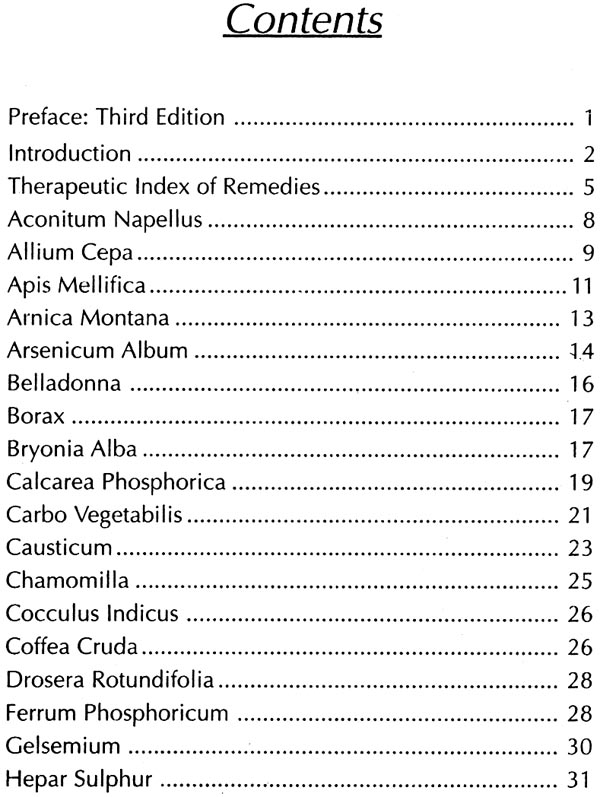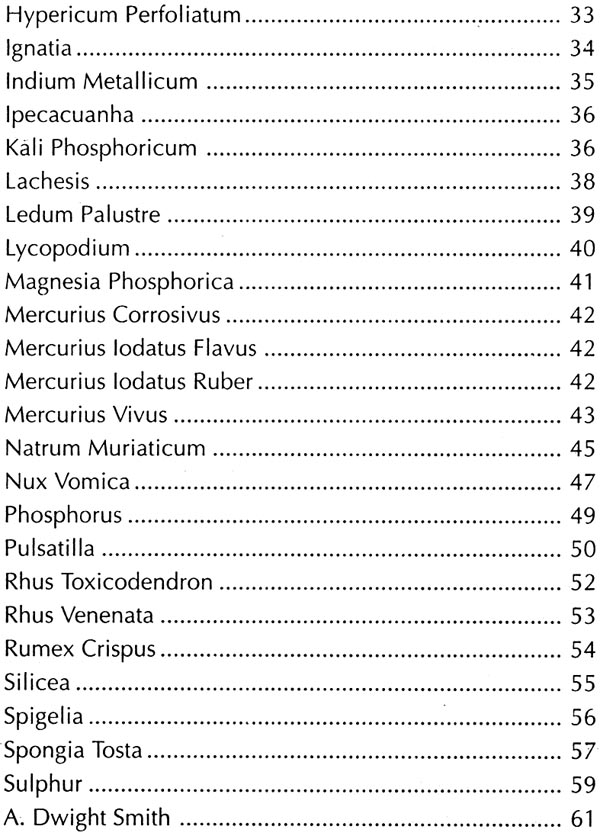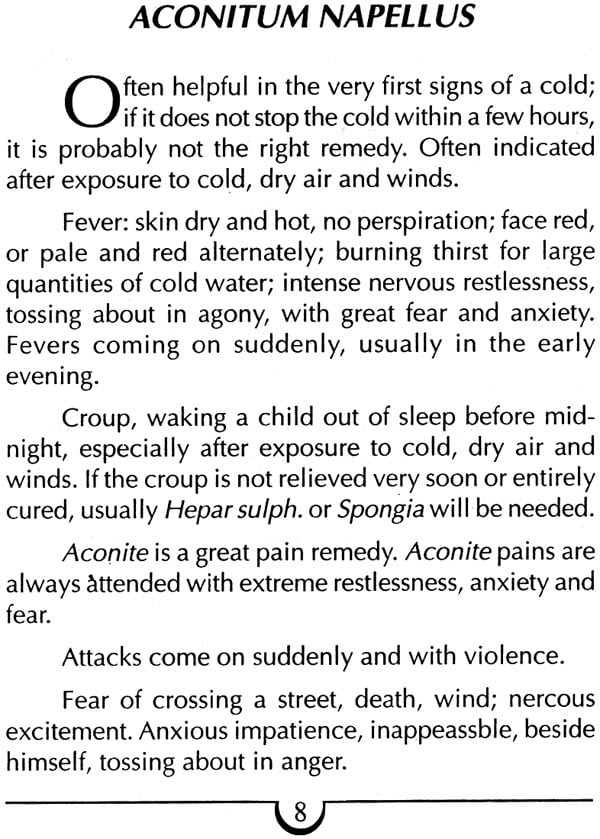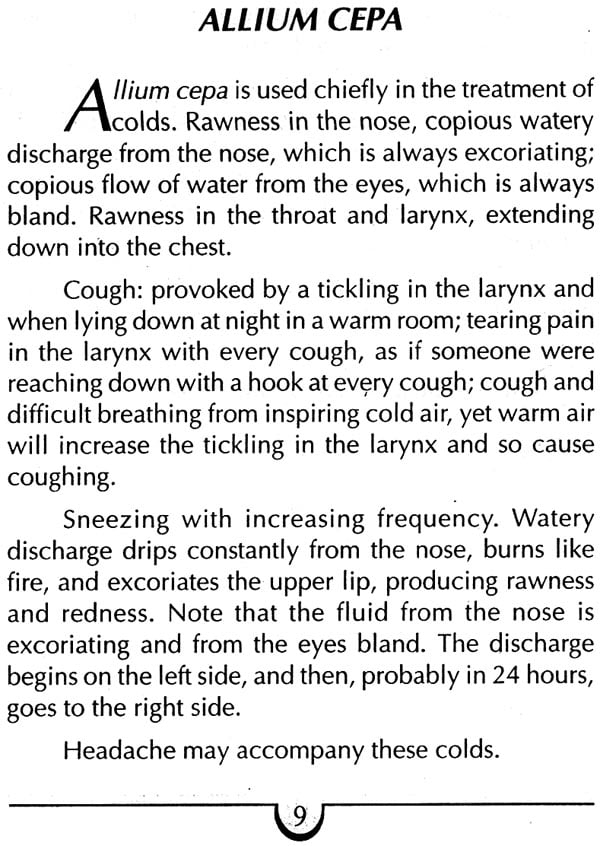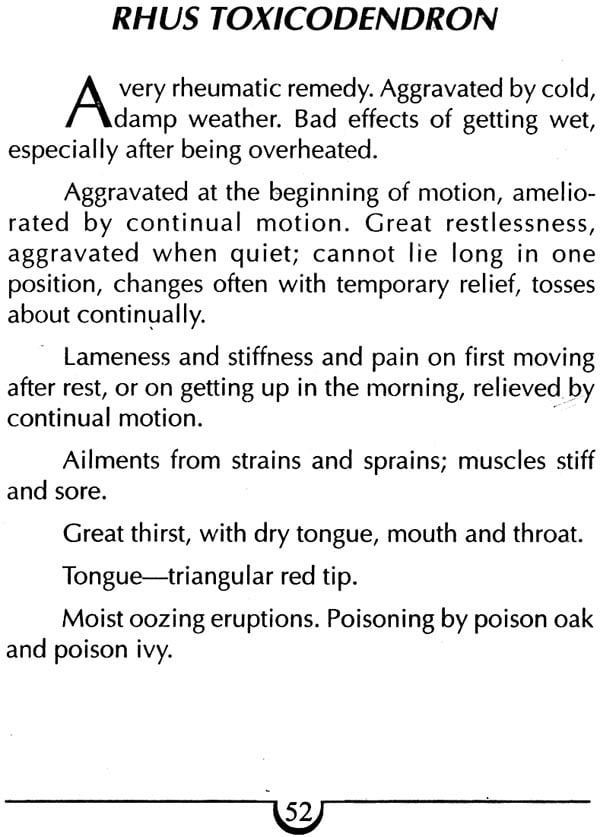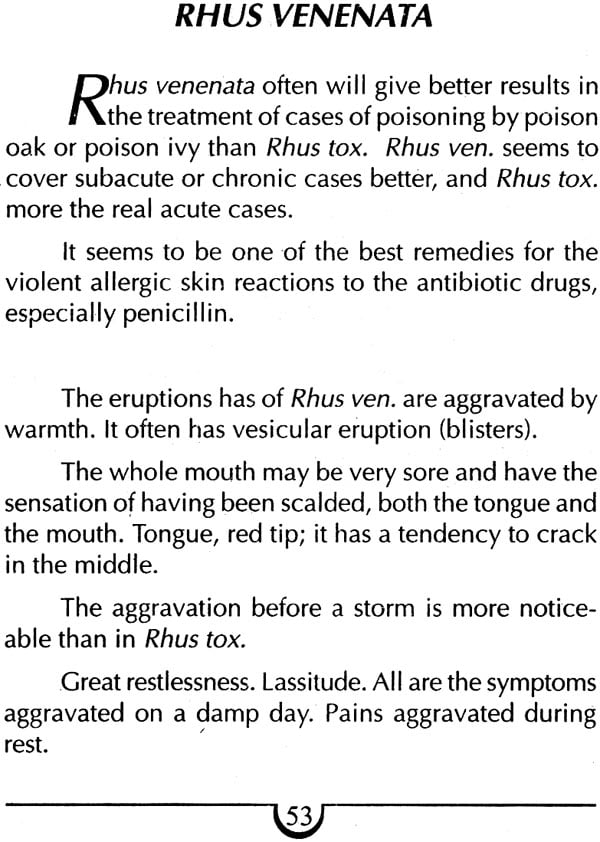
The Home Prescriber Domestic Guide
Book Specification
| Item Code: | NAU079 |
| Author: | A. Dwight Smith |
| Publisher: | B. Jain Publishers (P) Ltd |
| Language: | ENGLISH |
| Edition: | 2009 |
| ISBN: | 9788131906132 |
| Pages: | 60 |
| Cover: | PAPERBACK |
| Other Details | 7.00 X 5.00 inch |
| Weight | 30 gm |
Book Description
The little book that is well-laid out & to give timely help & guidance in minor ailments & especially to those who could not get the services of a homeopathic physician. It provides a real benefit to suffering humanity by giving simple guidelines as to how to use homeopathy for common ailments. The basic drugs which should be kept at home in a kit have been given with their indications & right way to use. A first step book for layman who want to use homeopathy for their family & themselves.
The third edition of the Home Prescriber has only a few minor changes in comparison with the second edition. This little book has been very well received and it is hoped that it has been a real help to many people in minor ailments and especially to those who could not get the services of a homoeopathic physician. It is also hoped that it has been the means of introducing this great system of healing to many people who knew nothing about it before.
The writer has been in the active practice of homoeopathy for fifty-two years. He still thinks that homoeopathy is the most scientific system of medicine known to the world and a real benefit to suffering humanity, without any of the side effects of many of the modern day drugs that are in common use today Eventually homoeopathy must come back into it’s own in this country; whether it will be under the name of homoeopathy or some other name remains to be seen.
Homoeopathy is a system of medicine founded by Dr. Samuel Hahnemann. It is based on the law of similars: similia similibus curentur, or similars cure similars. At the time of Hahnemann, the popular medication was Peruvian bark (from which quinine is now made). Hahnemann found that people who took it over a long time developed symptoms similar to malaria for which it was given to cure. He tried it on himself, then on his family, and then on other people and found that this was the basis for a scientific law of cure.
Homoeopathy is the most scientific system of medicine known, because it is based upon a scientific law that does not change.
Homoeopathy has also proved to the world that it is not necessary to take large doses of medicine. If the medicine is correct, it will act in very small doses. In fact, it often acts better in very minute doses than in larger ones.
A homoeopathic physician is an M.D., and has to take everything in his course of study that those of he regular school do, plus homoeopathy. Homoeopathy is more popular in England than it is in the United States, and in England all homoeopathic physicians have taken six years of regular medicine and then a postgraduate course in homoeopathy. Homoeopathy is more and more becoming considered as a specialty in medicine. The definition of Homoeopathy accepted by the American Institute of Homoeopahty is, "A homoeopathic physician is one who has added to his knowledge of medicine a special knowledge of homoeopathic therapeutics, and observes the law of similars. All that pertains to the great field of medical learning is his by tradition, by inheritance and by right." Homoeopathic remedies are prepared in the decimal and centesimal dilutions. The decimal system is one part of the drug to nine parts of the dilutant. Thus, the 1 x dilution is one part of the drug to 9 of the dilutant. The 3x is one part of the drug to 999 of the dilutatn. The centesimal is one part fo the drug to 99 of the diluting fluid, or vehicle, and on up. These dilutions must be properly prepared with the proper amount of succussion or trituration (grinding). Beginners should use the 3x or 6x, as a rule.
First, I shall give brief indications for 33 of the commoner homoeopathic remedies, frequently indicated in the less serious acute ailments. Then, I shall give the various conditions and the remedies I have found most frequently indicated in these conditions. The remedy most often indicated will be in CAPITALS, the next most frequently indicated will be in italics, and those less often indicated in ordinary type. When you look up a certain condition, you should read over the list of remedies given and see which one covers your case best. Homoeopathy has no remedy for a particular disease, but the remedy must be fitted to the individual patient. To acquire a thorough knowledge of homoeopathy to give the best results, especially in difficult cases, requires years of study.
This little treatise covers only briefly a few of the over one thousand remedies used in good homoeopathic prescribing, and necessarily, only a few important symptoms and indications are given for each remedy. Many of the homoeopathic remedies have an entire book written on the one remedy.
**Contents and Sample Pages**
